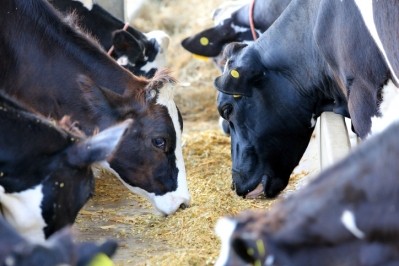US biotech company flirts with initial public offering

The California-based biotech company announced last week that it was taking steps for a proposed initial public offering.
The company filed a “registration statement with the US Securities and Exchange Commission” regarding the proposed public offering of shares in common stock for the company.
The number of shares of Cibus Ltd. that could be made available and the price range for an initial offering have not been established at this point, the company said.
It is planning to list its stock on the Nasdaq Global Market using the trading symbol “CBUS.”
Morgan Stanley and BofA Merrill Lynch are set to act as the joint book-running managers for the intended offering, it said.
The company is now restricted from discussing the proposed offering by securities law, it told us.
Cibus research and development
The company raised $70m in a series C funding round earlier this year to support commercialization of its first product – SU canola or a sulfonylurea tolerant version of the oilseed, Cibus said.
The funding generated also was intended to increase the pace of research and development focused on expanding the company’s portfolio of non-transgenic crops, it said.
The next set of crops of interest include flax, rice and potatoes followed other “major” crops.
Thus far, the canola variety has been well received in the marketplace, Cibus said. In the initial two years on the market, the feed crop has sold out its inventories and experienced triple-digit sales growth.
The development system uses gene editing to develop desired traits in feed and food crops, the company said.
IPO filing highlights
The filing of the registration statement follows the company’s initial release of a proprietary brand of canola seed in the North American market, Cibus said in the filing documents.
The product was relaunched earlier in 2018 in preparation for the future release of other traits.
That initial product has helped establish the company’s brand and build “market confidence” in Cibus regarding its abilities and the commercial viability of the non-transgenic gene editing system it uses, the company said.
Cibus also is pioneering a new technology in its rapid trait development system (RTDS), which can be used to customize plant lines with desired traits in a non-transgenic process and in a shorter period than some other development processes need.
Since releasing the SU canola variety in the US in 2016, the feed crop has developed about a 4% market share in the US canola market – based on acres planted, the company said.
The feed crop also has had a limited “pre-launch” in two Canadian provinces – Manitoba and Saskatchewan and a full launch in those regions is set for the 2019 growing season.
Additionally, the regulatory authorities in Canada and the US do not consider the oilseed to be a “product of genetic engineering,” the company said.
Additional lines of the feed crop with tolerances to other herbicides, yield support and disease tolerances are expected to be released into the North American canola market starting in 2019, the company said in its filing.
And, the second line of commercial strategy is to “develop and license” the crop traits to seed companies in markets outside of North America.
“Licensing traits gives us the greatest opportunity to penetrate these markets efficiently, while leveraging our licensing partners’ breeding and commercialization expertise,” Cibus reported.
Other crops including rice, soybeans, flax, potato and cassava also are of interest for development, it added.
The company’s intended growth strategy starts with the commercialization of a full line of branded canola seed in North America, then pursuing trait-licensing agreements with larger seed companies in canola and other crops and locations, it said.
It also includes expanding research and development abilities in non-transgenic gene editing and plant breeding, and continuing to interact with regulatory agencies and expanding market share as markets allow for non-transgenic gene-edited crops.












